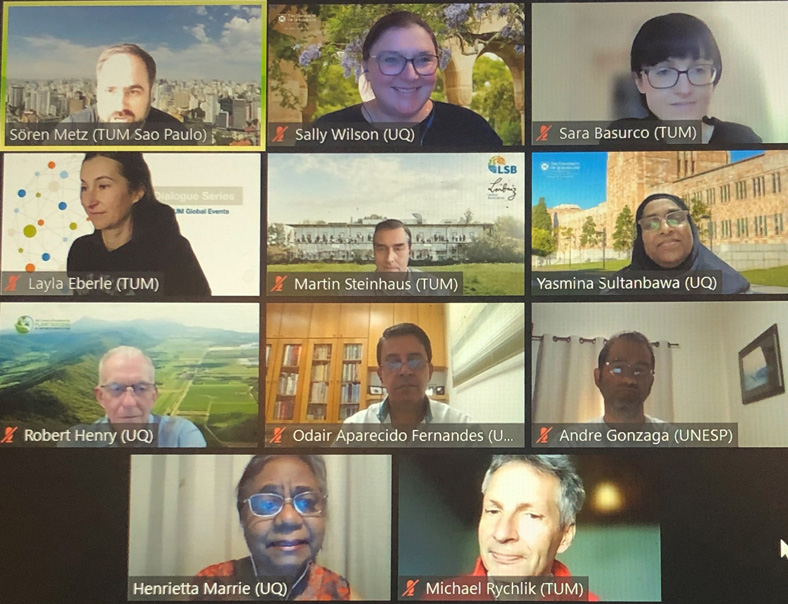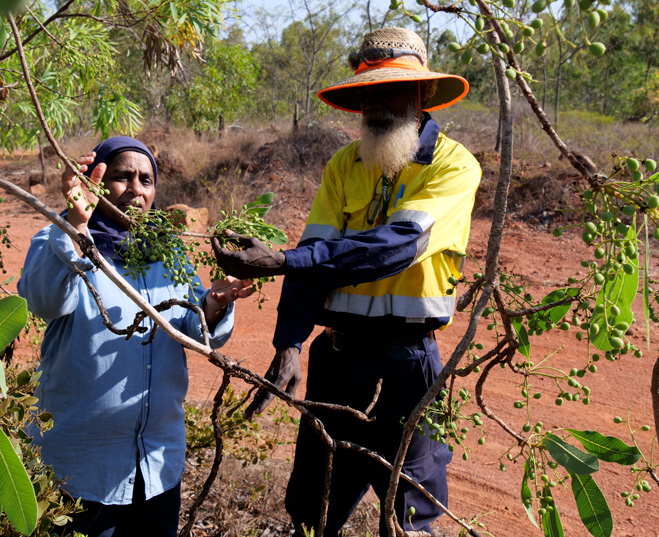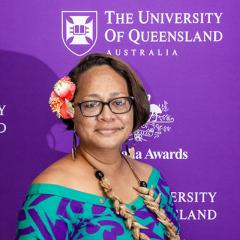Leading researchers from The University of Queensland, the Technical University of Munich (TUM), and São Paulo State University (UNESP) came together in December to discuss the future of food.

Hosted by the TUM São Paulo Office in Brazil as part of the TUM Global Dialogue Series 2021, the webinar explored critical international issues such as food security, responsible consumption and production, sustainable living, and nutrient-rich food sources.
TUM Professors Michael Rychlik and Martin Steinhaus, Odair Fernandes and André Gonzaga dos Santos from UNESP, and Henrietta Marrie, Robert Henry and Yasmina Sultanbawa from UQ highlighted the importance of embracing the connection between food, science, culture and environment.
The UQ team also shared its knowledge of Australian native superfoods and revealed new and innovative approaches to securing a range of health and nutritional benefits vital to the future of food.
UQ Honorary Professor Marrie opened the webinar by returning to the origins of food sharing and how we can apply this knowledge to address the issues of global food security, sustainability, and identification of nutrient rich natural resources.
“Every bush food has its own creation story, its own song and dance and cultural knowledge that has been handed down by our ancestors for thousands of years,” Honorary Professor Marrie said.
“The challenge for us is how do we bring our ancient foods into a contemporary industry while maintaining our connection to our culture, because for us, it’s not just about money, it’s about our identity.”
The researchers from Australia, Germany and Brazil all agreed that the future of food will be guided by tradition, science and technology. The food familiar to us now may not be available in the future and that we must be prepared to embrace the rapid change and opportunity that beckons; by aligning with the patterns of the past, we have some assurance and direction to help us support predictions for the future.

Professor Yasmina Sultanbawa, Director of the Uniquely Australian Foods Industrial Transformation Training Hub at UQ spoke regarding the benefits of food science involving the community and supporting the evolution of traditional industry sectors.
“We are working with Indigenous communities across Australia, as well as food industry entrepreneurs and a research team spanning law, engineering, food science and the social sciences to create a new agri-food sector based on uniquely Australian foods,” Professor Sultanbawa said.
Key projects including the super charged strawberry, kakadu plum and green plum research all form part of UQ’s Indigenous global foods’ mission.
The Global Bioeconomy Alliance was founded in 2018 by The University of Queensland (UQ), the Technical University of Munich (TUM), and São Paulo State University (UNESP). Learn more.



